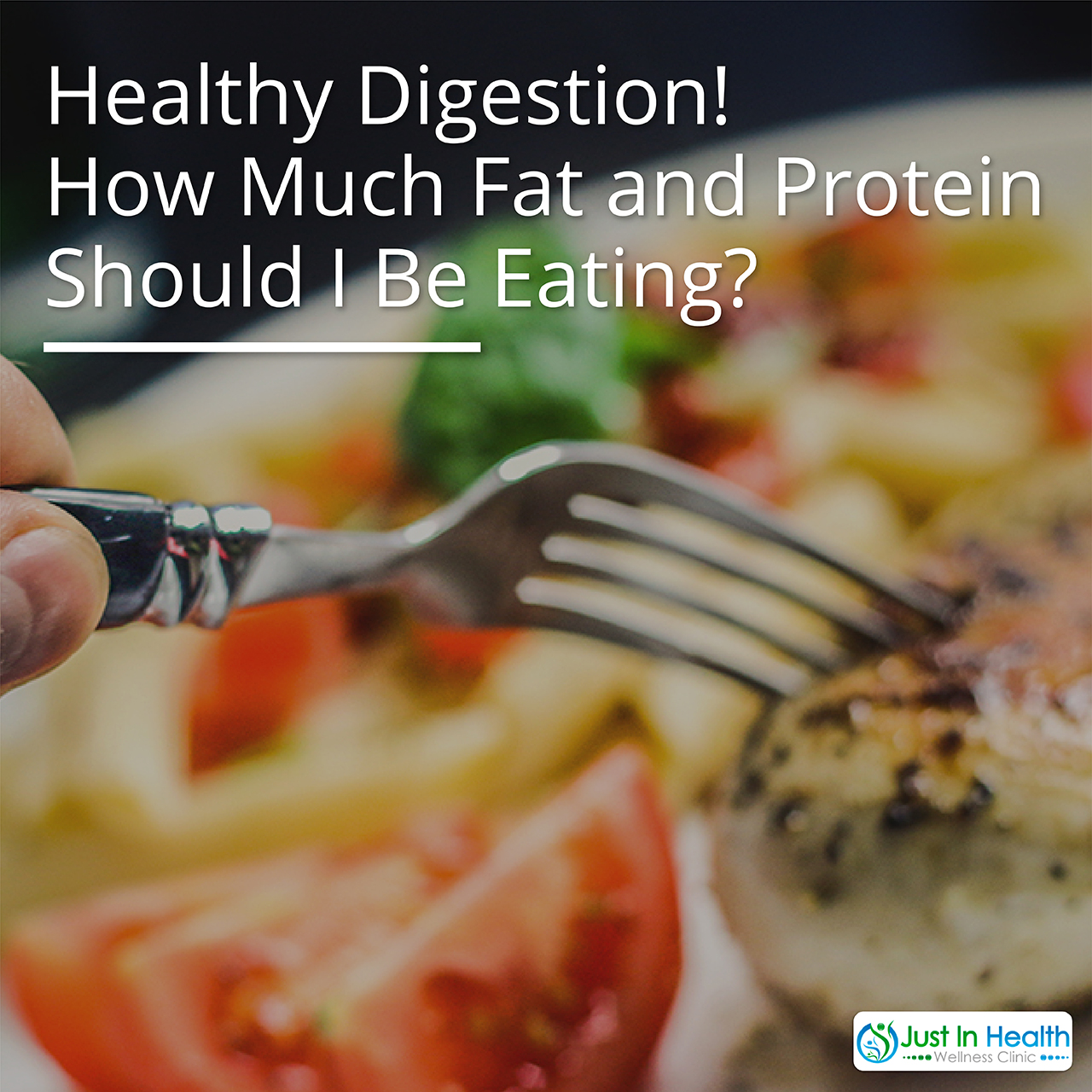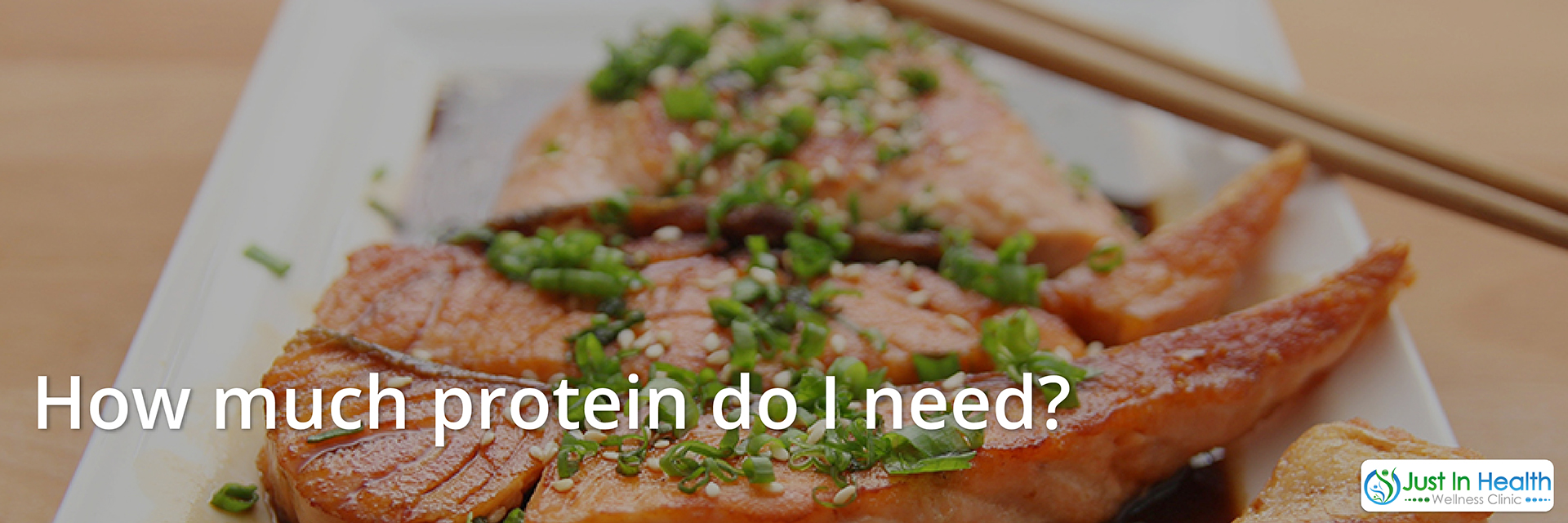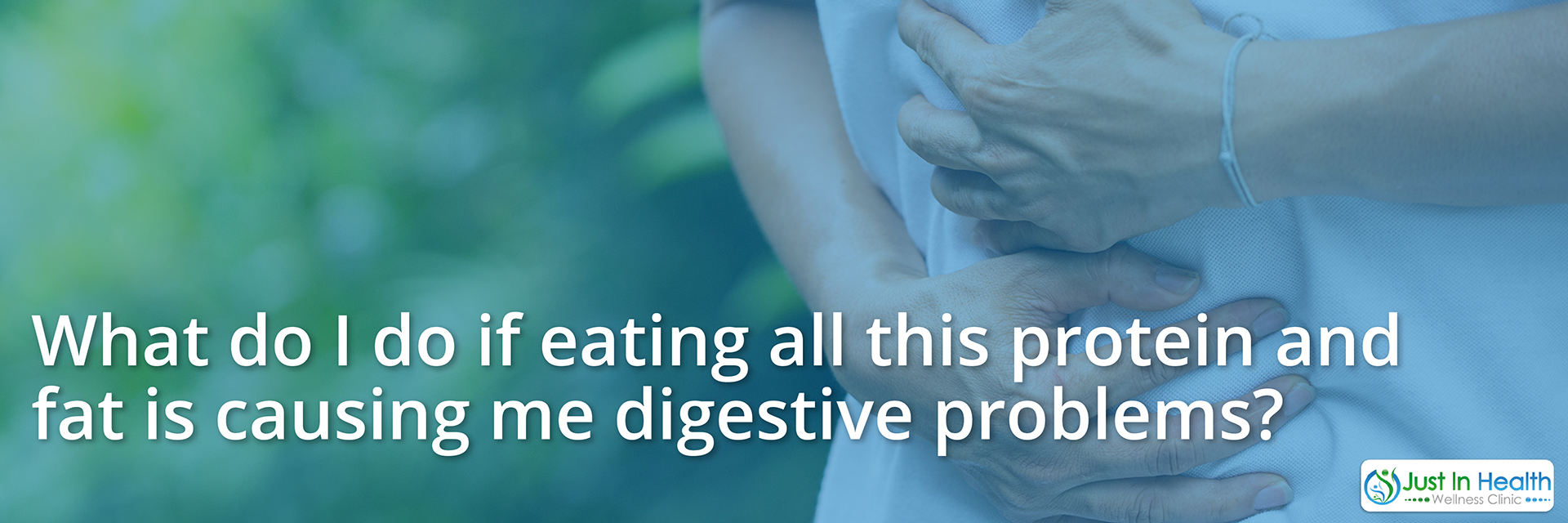

By Dr. Justin Marchegiani
Your body has specific feedback loops that are intimately tied with satiety (feeling full). It's interesting to know that fat and protein produce specific neurochemicals that make you feel full. Some of these neurochemicals are known as peptide YY, adiponectin, leptin, Ghrelin and CCK. These chemicals have an intimate feedback loop to the appetite centers of our brain. If you eat too many of these foods you will start to feel nauseous.
If you think back to some of the famous Pringles commercials of the 1990's where they would say, “Once you pop, you can't stop!” Or just think back to your college days, how many times do you remember eating a whole pizza to yourself ? It's very easy to eat foods in excess that don't produce a neurochemical signal to your brain telling you you're full. The food industry knows this, and that is one of the reasons why they've taken most fats out of the food and added refined sugar and artificial sweeteners in their place. it's wrong to even refer to these items as food, as Michael Pollan poetically puts it, they are more like “Edible food like substances.”
When you wake up in the middle of the night craving something; do you find your self craving a grass fed steak with asparagus? Or are you craving some potato chips and Häagen-Dazs ice cream? You'll find the underlying denominator in all these cravings is refined sugar and high glycemic carbohydrates.
Click here to find out more about

My personal recommendations are 0.5 to 1 g per pound of body weight. Many people convolute this formula using kilogram conversions and refer to lean body mass, in my opinion this just makes it more confusing. In general the recommendations above are adequate and nearly everyone can calculate their needs within just a few seconds.
Therefore a 200 pound man would need anywhere between 100 g of protein to 200 g protein depending on activity level and particular goals. If this person were training and trying to increase their muscle mass I would recommend staying at the 1 g side.
Strength coaches such as Charles Poliquinn even go as far to recommend 2 g per pound of body-weight. For your average everyday person 0.7 grams per pound is a safe starting place, you'll find it's probably far more than what you're eating currently.
The only individuals that need to worry about their protein consumption are people who have kidney damage or kidney disease. Proteins do not create kidney damage on a healthy kidney, but if your kidney is already impaired, the extra glomular filtration may be to much for the kidney to handle. Adding extra fats into your diet have a net neutral effect and can be a good alternative if you have kidney damage.
Many people ask about the acid load of protein. As long as you eat enough high quality vegetable and fruit emphasis on the vegetables, the alkalinity created from the vegetables will be more than enough to balance out the acidity of the meat proteins. The most acidic proteins are soy, grains, casein and egg whites; all other whole animal proteins provide an adequate amount of phosporus which will help neutralize it from it's calcium leaching effects.
I recommend starting off your day with the first 30 to 60 minutes consuming at least 30 g of protein. Below are different food choices and their protein amount per 4 ounces. FYI the palm of your hand is about 3 ounces, so something slightly bigger than your palm is a good estimate.
Beef- 32 gms. Lamb- 30.2 gms.
Turkey- 32.6 gms. Chicken- 33.8 gms.
Calf liver- 24.5 gms. Venison- 34.3 gms.
Salmon- 29 gms. Scallops- 23 gms.
Shrimp- 23.7 gms. Cod- 26 gms.
Tuna – 34 gms. Sardines- 22.7 gms.
*Tofu- 9.2 gms. Egg- (1) 6 gms.
*Lentils- 1cup 17.9 gms. *Dried peas- ½ cup 6 gms
*Cottage cheese- ½ cup 14 gms. *Yogurt- 1 cup 12.9 gms.
*Kidney Bean- 1 cup 15.4 gms. *Pinto Beans- 1 cup 14 gms.
*Lima Beans- 1 cup 14.7 gms. *Black Beans- 1 cup 15.2 gms.
*Garbanzo- 1 cup 14.5 gms. *Navy Bean-1 cup 15.8 gms.
Walnuts- ¼ cup 3.81 gms. Almonds- ¼ cup 7.62 gms.
Cashews- ¼ cup 5.24 gms. Almond Butter- 2 TBSP. 7 gms.
Cashew Butter- 2 TBSP 5 gms.
*Please keep in mind that beans are two thirds starch. So for every 1 g of protein you get from beans (legumes) you end up consuming 2 g of starchy carbohydrate. This is one of the main reasons why I don't like legumes or beans as a quality protein source. I also don't recommend getting your protein from dairy sources like cottage cheese and yogurt. The casein proteins in these foods can create inflammation and stress the immune system. These dairy foods in their raw form are far superior to their pasteurized, homogenize and refined alternatives.

Your stomachs main job is to digest protein. It does this by producing HCl and pepsin which help decrease the pH in your stomach. As the acidity in the stomach decreases, this provides a more favorable environment to help break down protein. As the acidic chyme (pre-broken down protein and food in the stomach) are released into the small intestine, this signals a release of bile from the gallbladder and pancreatic enzymes from the pancreas. The bile from the gallbladder is an emulsifying agent which helps break down this newly entered fat in the small intestine. If the chyme from the stomach is not acidic it will not trigger a release of bile when it enters the small intestine.
As you can see there's an intricate domino effect occurring in our digestion processes. Healthy digestion in the stomach is the first domino that needs to fall. This domino then triggers healthy digestion in the small intestine. The next domino that falls is healthy absorption of these broken down nutrients in the small intestine and healthy bacterial fermentation and re-absorption of electrolytes in the large intestine. if one Domino doesn't fall they can mess up the whole chain!
If you have a digestive problem the first thing I would recommend is supporting your body with hydrochloric acid, enzymes, pancreatic support and bile salts. This greatly aids in your body's digestive abilities, which helps you to break down, utilize and assimilate all of the great food your putting your body. if your digestion is impaired it's common to have bloating, gas, stomach burning or Gerd, belching, nausea and skin problems.
Some individuals have a gastrointestinal infection ranging from a parasite, bacteria (H-Pylori is a common one), fungus or viruses. it's important to mention that everyone is entitled to having more than one infection, the more infections you have, the longer the recovery time.
If adding in digestive support doesn't do the trick you should be screened for an infection either way. The goal isn't to use natural supplements to cover up symptoms, the goal is to get to the underlying cause of the problem.
The last thing you want to do is use any type of proton pump inhibitors or acid blockers to fix the problem. This may help some of the symptoms in the beginning, but in the long run you are opening yourself up to major problems!
If you need help figuring out your diet and getting your digestion back on track, feel free and schedule a complimentary consultation by clicking here. This will at least give you the opportunity figure out the next steps you need to take to help improve your health!